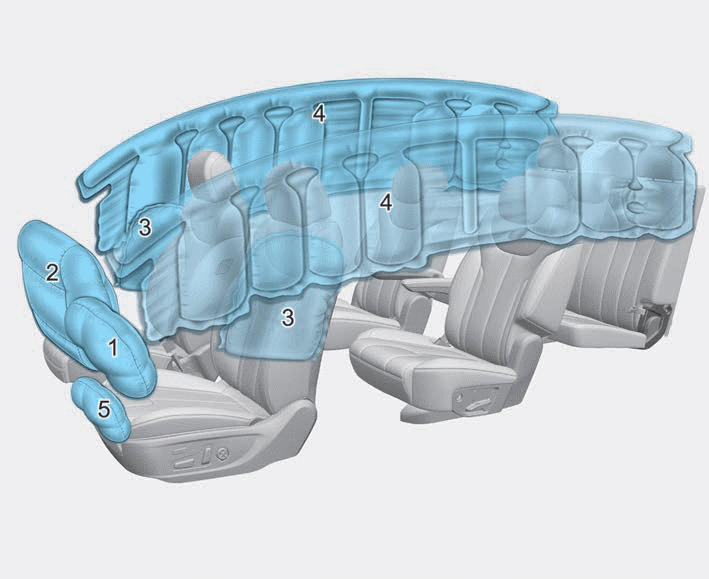Hyundai Palisade: Tire Pressure Monitoring System / TPMS Receiver
Description and operation
| Description |
TPMS Receiver : BCM(body control module) integrated management

| 1. |
Mode
|
| 2. |
Overview
|
| Operation |
| 1. |
General Function
|
| 2. |
General Conditions to Learn New Sensors:
|
| 3. |
General Conditions to Un-Learn a sensor that is removed :
|
Repair procedures
| Replacement |
[TPMS Receiver (integrated Body control Unit (IBU))]
| 1. |
Turn the ignition switch OFF and disconnect the battery negative (-)
cable.
|
| 2. |
Remove the glove box.
(Refer to Body - "Glove Box")
|
| 3. |
Disconnect the body control module connectors (A) and then remove the
integrated body control unit (B).
|
| 4. |
Install in the reverse order of removal.
|
| 5. |
After replacing the receiver, learn by using self-diagnostic device
GDS.
|
| Diagnosis procedure by using diagnostic device |
The main contents of diagnostic method using diagnostic device are as follows:
| 1. |
Connect self-diagnosis connector (16 pins) located in the lower driver
side crash pad to self-diagnosis device, and then turn on the self-diagnosis
device after key is ON.
|
| 2. |
Select the "vehicle model" and "TPMS" on GDS vehicle selection screen,
then select OK.
|
[Vehicle Name Writing Method]





[Wheel Sensor ID Writing Method]





 TPMS Sensor
TPMS Sensor
Description and operation
Description
1.
General description
WU is a sensor placed in the tire that reports pressure and temperature...
Other information:
Hyundai Palisade (LX2) 2020-2025 Owner's Manual: Smart Cruise Control Speed
To set Smart Cruise Control speed 1. Push the CRUISE button on the steering wheel to turn the system on. The cruise indicator will illuminate. 2. Accelerate to the desired speed. The Smart Cruise Control speed can be set as follows: 5 – 100 mph (10 - 160 km/h) : when there is no vehicle in front 0 – 100 mph (0 - 160 km/h) : when there is a vehicle in front 3...
Hyundai Palisade (LX2) 2020-2025 Owner's Manual: SRS Care
The SRS is virtually maintenancefree and there are no parts you can safely service by yourself. If the SRS air bag warning light does not illuminate when the ignition switch is in the ON position, or continuously remains on, have your vehicle immediately inspected by an authorized HYUNDAI dealer...
Categories
- Manuals Home
- 1st Generation Palisade Owners Manual
- 1st Generation Palisade Service Manual
- Removing and Storing the Spare Tire
- Electrochromatic Mirror (ECM) with homelink system
- Electronic Child Safety Lock System
- New on site
- Most important about car
Air Bag - Advanced Supplemental Restraint System

1. Driver's front air bag
2. Passenger's front air bag
3. Side air bag
4. Curtain air bag
5. Driver’s knee airbag
This vehicle is equipped with an Advanced Supplemental Air Bag System for the driver's seat and front passenger's seats.
Copyright © 2025 www.hpalisadelx.com



